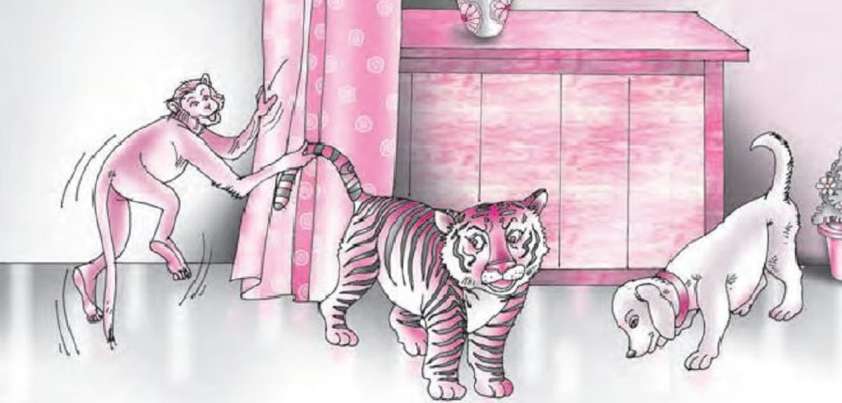 In this story by Ruskin Bond, an old man finds what appears to be an orphan tiger cub in the jungle and takes it home as a family pet. After six months, the cub grows out of its ‘playful’ stage and starts to become less friendly. The old man donates the tiger to a zoo, and gets an unexpected surprise when he visits it six months later. The story raises serious questions about the man’s two decisions (to take the tiger cub home, and to give the grown animal to a zoo where there are no others of its kind).
In this story by Ruskin Bond, an old man finds what appears to be an orphan tiger cub in the jungle and takes it home as a family pet. After six months, the cub grows out of its ‘playful’ stage and starts to become less friendly. The old man donates the tiger to a zoo, and gets an unexpected surprise when he visits it six months later. The story raises serious questions about the man’s two decisions (to take the tiger cub home, and to give the grown animal to a zoo where there are no others of its kind).
Original Text / PDF (1,300 words)
General Comments & Analysis
The story is told in the first person by the old man’s grandson. He relies on his Grandfather’s word for the circumstances in which he found the cub and events at the zoo. As with all first person narratives, these aspects of the story should be regarded as potentially biased and/or incomplete.
Many see the story as a simplistic tale of how kindness can calm a savage beast. However, it also teaches a far more important lesson about well-meaning but thoughtless animal cruelty. In removing the tiger cub from the jungle and thinking he could raise it as a family pet, the old man consigns the poor animal to a life of misery. With no fear of humans and no hunting or jungle survival skills, Timothy would almost certainly die or be killed if released back into the wild. Similarly, having experienced the companionship and relative freedom of living with the family, being locked up alone in a cage at the zoo would be unbearable. The major theme of the story is that it is wrong to remove wild animals from their native environment (especially if the primary purpose is human enjoyment) unless appropriate attention is paid to their welfare.